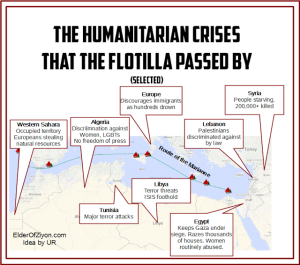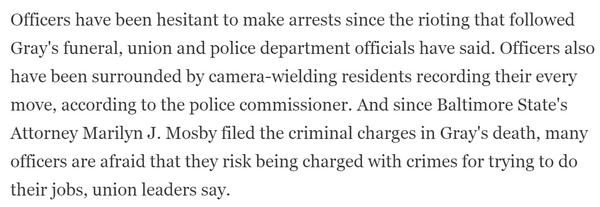Rabbi Shafran is someone I have admired for decades. His witty, moving, and inspirational biography of the journey of a Jewish convert, Migrant Soul, emerged when I was still a yeshiva student, and when he became Director of Public Affairs for Agudath Israel, I knew the organization was in good hands, and it has been so. I agree with what he writes most of the time, certainly on issues affecting the charedi community.
One of the few things I can neither agree with — nor even comprehend — is Rabbi Shafran’s service to the Obama Administration as its chief charedi apologist. Time and again, his arguments in this one area seem, to me, to stretch the limits of credulity in search of a way to show that Obama is actually much more pro-Israel, pro-religion, and/or simply pro-common-sense than he so consistently appears to be.
This week has proven no exception, and it is, for me, a bridge too far. As many have already pointed out, Michael Oren is brilliant, dedicated, loves both Israel and the United States, is an historian with an impeccable record of attention to detail, and, finally, is no “Ally” of Netanyahu — on the contrary, he is now a Member of Knesset from the centrist Kulanu party. He is not one who would be anxious to falsify the record, neither deliberately nor even through error. And, despite Rabbi Shafran’s protestations to the contrary, there is no evidence that he did.
As Bret Stephens and the Wall Street Journal put it, “Michael Oren’s candid account of Obama’s Mideast policy has won him the right enemies.” Stephens means the Obama administration, which he describes as “in an epic snit” over the book. But this could also refer to Jane Eisner of The Forward, and the Past President of the Union for Reform Judaism, Reform Rabbi Eric Yoffie, both of whom resented Oren’s depiction of liberal American Jews as, in Yoffie’s words, “unreliable in their support of Israel… forever babbling about Tikkun Olam, and more inclined to help others than their own.” As Stephens put it, “Truth hurts.”
I do not understand Rabbi Shafran’s need to add to the din of the Obama-adulating masses, so eager to spin reality until it vanishes in a blur. This is especially true because his three critiques of Oren’s work can best be described as “wrong, wrong, and wrong.”
The three of Michael Oren’s claims with which Rabbi Shafran takes issue begin with two published in Hamodia:
Sin #1, according to Mr. Oren, consisted of Mr. Obama’s telling American Jewish leaders in 2009 that Israeli Prime Minister Netanyahu’s lack of movement toward a peace process “erodes our credibility with the Arabs.” And the president’s “void[ing of] George W. Bush’s commitment to include the major settlement blocs and Jewish Jerusalem within Israel’s borders in any peace agreement.” And Mr. Obama’s call for a temporary “freeze of Israeli construction” in contested areas.
Sin #2? President Obama didn’t share a copy of his Cairo speech with Israel ahead of time, even though it contained “unprecedented support for the Palestinians” and “recognition of Iran’s right to nuclear power.”
To which he later added a third:
Mr. Oren’s description of how President Obama left Israel off a list of countries the president lauded for aiding Haiti after its devastating earthquake in 2010.
MK Oren did not, in actuality, claim that no previous President had publicly disagreed with Israeli policies. What he referred to, rather, was “no daylight.” Regardless of disagreements, brothers are brothers — there is no “distance” between members of a loving family. In his Wall Street Journal Op-Ed, aptly titled “How Obama Abandoned Israel,” Oren described how Obama changed things as follows:
“When there is no daylight,” the president told American Jewish leaders in 2009, “Israel just sits on the sidelines and that erodes our credibility with the Arabs.” The explanation ignored Israel’s 2005 withdrawal from Gaza and its two previous offers of Palestinian statehood in Gaza, almost the entire West Bank and half of Jerusalem—both offers rejected by the Palestinians.
Obama did not merely “call for a temporary freeze of Israeli construction.” What he did was dramatically shift the tenor of the American position from that of every American President since Reagan, all of whom disagreed with the expansion of settlements, the “settlement enterprise,” the building of outposts and roads through territory certain to become Palestinian.
Oren writes that Obama, by contrast, “insisted on a total freeze of Israeli construction in those areas — ‘not a single brick,’ I later heard he ordered Mr. Netanyahu — while making no substantive demands of the Palestinians.” Indeed, Obama said at a 2009 press conference, with Netanyahu standing beside him, that “Settlements have to be stopped in order for us to move forward.” Oren is hardly the first person to point out that Obama thus turned a Palestinian demand into US policy.
Attempting to defend Obama against the claim that he abandoned George W. Bush’s “promise to include the major settlement blocs and Jewish Jerusalem within Israel’s borders in any peace agreement,” Rabbi Shafran points to Obama’s statement that the return to the 1967 borders “would include land swaps.”
This is insufficient for three reasons: Obama explicitly broke Bush’s promise, Obama demanded no further construction even inside the major settlement blocks certain to remain part of Israel, and Obama expected Israel to withdraw from the equivalent of the full territory of the West Bank, which was demanded neither by George W. Bush nor, in fact, UN Security Council Resolution 242. In his letter to Ariel Sharon in 2004, as Sharon contemplated unilateral withdrawal from Gaza, President George W. Bush wrote the following:
In light of new realities on the ground, including already existing major Israeli populations centers, it is unrealistic to expect that the outcome of final status negotiations will be a full and complete return to the armistice lines of 1949, and all previous efforts to negotiate a two-state solution have reached the same conclusion. It is realistic to expect that any final status agreement will only be achieved on the basis of mutually agreed changes that reflect these realities.
As documented by Oren in his book:
The letter… endorsed by both houses of Congress… persuaded the Israeli public that ceding territory could yield concrete commitments from the United States. It safeguarded secure borders for the Jewish State. And it created diplomatic space for Israelis and Palestinians alike. The letter enabled Israeli governments to ease pressure from right-wing groups by building in those “major population centers” without precluding the establishment of a viable Palestinian state. Though they officially opposed any Israeli presence beyond the 1967 lines, Palestinian leaders understood that the areas suggested by the Bush-Sharon letter were nonnegotiable.
Shockingly, then, shortly after taking office, the Obama administration disavowed the letter. Denying the existence of any “informal or oral agreement” on Israeli construction in Jerusalem and the settlement blocs, the State Department further asserted that the letter “did not become part of the official position of the United States.”
As seen above, Obama demanded a complete building freeze, explicitly including the very regions that Bush promised could now be considered part of Israel proper. The fact that Netanyahu was forced to institute such a freeze for ten months, the Palestinians did absolutely nothing during that time, and afterwards Obama continued to blame both parties equally for failing to negotiate, simply reassured Abbas that he had no reason to negotiate at all, as Obama was making Israelis miserable for him. Or, as Oren puts it in his op-ed:
Consequently, Palestinian President Mahmoud Abbas boycotted negotiations, reconciled with Hamas and sought statehood in the U.N.—all in violation of his commitments to the U.S.—but he never paid a price. By contrast, the White House routinely condemned Mr. Netanyahu for building in areas that even Palestinian negotiators had agreed would remain part of Israel.
We must then turn to what Rabbi Shafran describes as “Sin #2” — namely, that Obama failed to share an advance copy of his Cairo speech with Israel. This characterization of Oren’s second accusation, however, is entirely inadequate. What Oren refers to is an ongoing pattern of “surprising” Israel with radical changes in policy, the Cairo speech, “with its unprecedented support for the Palestinians and its recognition of Iran’s right to nuclear power,” being merely the first of many.
Oren asserts that these surprises were unprecedented, and indeed no one is able to provide a counter-example — perhaps explaining why Rabbi Shafran substituted such a facile strawman argument in place of what Oren actually said. For example, requiring that Israel return to the 1967 borders “with land swaps” reversed forty years of US policy, as mentioned above.
All of these build to Oren’s most timely example of an Obama surprise: “Finally, in 2014, Israel discovered that its primary ally had for months been secretly negotiating with its deadliest enemy.” Oren put this op-ed out now because he believes that Obama’s coddling of Iran is putting Israeli and Jewish lives in grave danger. For this, Rabbi Shafran has no rebuttal.
And then finally, in a new contribution, Rabbi Shafran focuses upon Oren’s pointed reference to President Obama’s public statement about the Haiti Earthquake, which entirely omitted the disproportionate, massive contribution of the State of Israel to the relief effort.
Rabbi Shafran relies upon Ron Kampeas of the JTA to rebut Oren; the only problem is that Kampeas was wrong. First of all, Oren feeling like he “had been kicked in the chest” clearly indicates that “he knew what they knew” — unless Oren is, today, simply delusional, suffering from False Memory Syndrome. According to Oren’s account, he knew with certainty that the Obama administration knew Israel was sending a team quite large enough to deserve mention, and this was why Obama’s failure to do so caused him acute pain. In their anxiousness to discredit Oren, Kampeas and Rabbi Shafran are happy to assert that he fabricated this personally traumatic recollection from whole cloth.
Oren’s version, though, is substantiated by contemporaneous documentation. On Thursday, January 14, a day before the President’s speech, Israel 21c reported the following:
On Thursday afternoon, the Ministry of Foreign Affairs issued this announcement: “Israel is doing all in its power to help the people of Haiti cope with the disaster in their country. A 220-person delegation, headed by Ministry of Foreign Affairs officials, will leave this evening for Port-Au-Prince on two Boeing 747 jets leased from El Al by the IDF.
“The relief package includes a Home Front Command field hospital and rescue unit, as well as teams from Magen David Adom and Israel Police.”…
Meanwhile, the Israeli Embassy in the US has been called on to coordinate Israeli efforts with American aid offices, so the Israelis will be ready to provide medical aid where it is most needed.
So not only did Israel announce to the global press that they were sending two 747’s full of people and equipment the day before the speech, Oren’s office was intimately involved in coordinating with the Americans. If anyone knew what the Americans knew at the time, it was Michael Oren — which, again, explains why he was personally hurt by the President’s omission.
Additional documentation is provided by The Tower. First, they dispense with Kampeas’ assertion that Israel was not the first country to arrive in Haiti after the disaster. All the other countries listed, those used by Kampeas to “disprove” Oren’s statement, turn out to have “already had a presence in Haiti in January 2010 through their participation in MINUSTAH—the United Nations Stabilisation Force in Haiti.” In addition:
Obama’s remarks on January 15 referred to those countries both present as part of the UN force and those countries that announced they were sending aid in the earthquake’s aftermath: hence his phrasing (“Help continues to flow in“) and his namechecking of Mexico and the Dominican Republic…
As Kampeas’ JTA colleague Uriel Heilmann reported: “Within hours of the quake, officials from Israel’s consulates in New York and Miami were on civilian planes heading toward the Dominican Republic, where they were to rendezvous with the local Israeli ambassador before heading overland into neighboring Haiti. Their goal: rent vehicles, find a site to establish a field hospital, and take care of all the necessary logistics so the 240-person IDF-organized aid team could hit the ground running”…
The CNN timeline which Kampeas relies on contains the following entry made nearly seven hours before Obama delivered his speech [Note that this is off by a day. That CNN report, having been posted at 6:45 a.m. on the 14th rather than 15th, precedes the President’s speech by 31 hours. –YM]: 6:45 a.m. — A four-member rescue team from Israel was scheduled to arrive Thursday morning [the 14th], followed by two more jets carrying a field hospital and 220 rescue and hospital workers.
Awareness of the Israeli aid effort was being reported in major media as early as January 13. On that day, Fox News reported that ‘Israel and Ireland also had disaster aid teams on the way.’ On January 14, The Christian Science Monitor published a piece entitled ‘The nations that are stepping up to help’ which noted the following: ‘Israel: Two plane loads of aid and rescue staff of 240, including 40 doctors and nurses to set up a field hospital capable of serving 500 people a day.’
So not only was Israel’s very substantial contribution to the effort publicized by its Foreign Ministry, it was also reported by (at least) three major national US news outlets well before the speech. There is simply no way that anyone well-informed about the aid effort could have been unaware that Israel’s field hospital team, which was, according to CNN, “like another world compared to the [American] hospital,” was already inbound while the President was speaking. The President simply chose to leave Israel out in the cold.
It remains true that the US government remains light-years ahead of any other in its support for Israel — as the EU proved just today, by supporting a resolution equating Israeli self-defense with bloodthirsty terrorism. But it is perhaps time for Rabbi Shafran to give Michael Oren credit where credit is due, and indeed, to revise his “positive judgment of Mr. Obama’s regard for Israel.” It would be nice to go back to reading his articles with admiration not merely for his talents as a wordsmith, but with how excellently he has expressed my own sentiments.



 The Sifsei Chachamim points out that this is a unique moment. It was forbidden to leave the Temple Mount wearing those unique garments — so why was Aharon told to ascend the mountain in them, and Elazar to return wearing them?
The Sifsei Chachamim points out that this is a unique moment. It was forbidden to leave the Temple Mount wearing those unique garments — so why was Aharon told to ascend the mountain in them, and Elazar to return wearing them?
